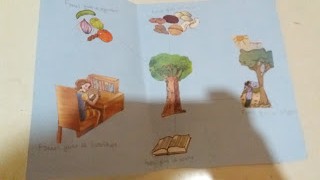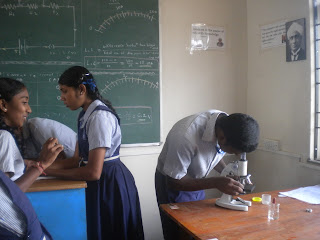Discrepant events
Air Pressure: Balloon
Insert a deflated balloon into a plastic soda bottle and stretch the mouth piece to fit over the mouth of the bottle. Blow air into the bottle. The balloon will not be able to inflate because there is air trapped in the bottle around the balloon. Prepare a second bottle and secretly poke a hole in the bottom of the bottle. You will easily be able to inflate the balloon. Moreover, if you cover the hole after inflating the balloon, the balloon will remain inflated.
Jumping Flame
This
discrepant event science experiment will allow you to light a candle without
touching the wick. First, light two candles with a match or lighter. Allow them
to burn for a full minute to build some heat. Blow out one candle and hold the
second candle's flame just above the wick in the smoke that billows from the
unlit wick. The flame from the second candle will use the smoke as fuel and
connect with the first wick, relighting the candle. This occurs because all
three requirements for creating fire are in place: heat, oxygen and fuel (the
solid particles in the smoke vapor).
·
Ice Cubes in Water & Rubbing Alcohol
Materials Needed
· ice cubes (made with food coloring for better visibility)
·
2 beakers (same size)
·
water
·
rubbing alcohol
Set Up/Instructions
1.
Fill one beaker with the rubbing alcohol and the other beaker with
water before students enter the room.
2.
Place the ice cube in the beaker of water - the ice will float.
3.
Place the ice cube in the beaker of alcohol - the ice will sink.
Questions for Students
1.
What happens when ice is put into water? Think about a large
glass of ice water.
2.
Why did the ice cube float in one liquid and not the other?
3.
What causes things to float or sink?





























